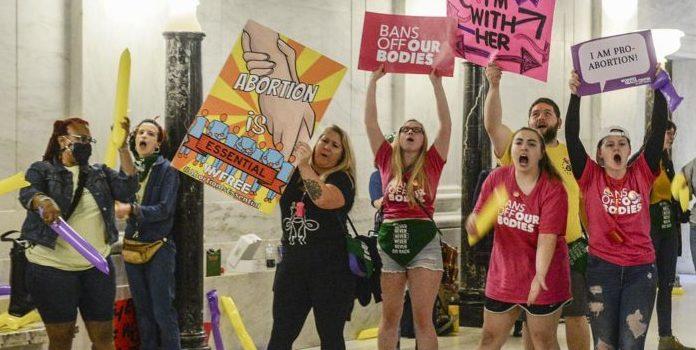() Legislation that would ban abortion in most cases passed both chambers of the West Virginia legislature after lawmakers reached a deal on how the rules will be enforced.
After about a month and a half of negotiations, lawmakers agreed abortion would be illegal, except when the procedure is necessary to save the life or protect the health of the mother or in the cases of rape and incest. To receive an abortion for a pregnancy that resulted from rape or incest, the woman must file a report with law enforcement and present the report to law enforcement before receiving the abortion.
Under the law, abortions do not include miscarriages, stillbirths or in vitro fertilization.
If a woman receives an abortion, despite the prohibition, the state will not impose any penalties on her. A physician who performs an illegal abortion under this law would be subject to disciplinary action from the applicable licensure board.
The physician will not receive any criminal penalties, unless he or she performs a partial birth abortion. Performing an illegal partial birth abortion would be a felony, which would incur fines between $10,000 and $50,000 or be imprisoned up to two years or both. This would not apply when the life or the health of the mother is in danger.
A former physician who lost his license because of violating the abortion ban would be subject to criminal penalties if he performs the procedure unlicensed afterwards. He or she would be guilty of a felony and subject to a prison sentence between three or 10 years. A person who never had a license who performs an abortion would be subject to the same criminal penalties.
These enforcement rules were established after House and Senate lawmakers struck a deal in negotiations. The previous House version would have subjected licensed physicians to criminal penalties, but the Senate refused to include that in the final bill.
Under West Virginia’s abortion laws before Roe v. Wade, physicians were punished for performing abortions with a prison sentence between three and 10 years. Although Gov. Jim Justice and Attorney General Patrick Morrisey had intended to enforce the old law, a court blocked the state from doing so. Because the state could not enforce the old law, the governor called a special session to update the state’s abortion laws.
Justice can either sign the legislation as is, offer amendments or veto the bill. He has already expressed his support for banning abortion in the state.

